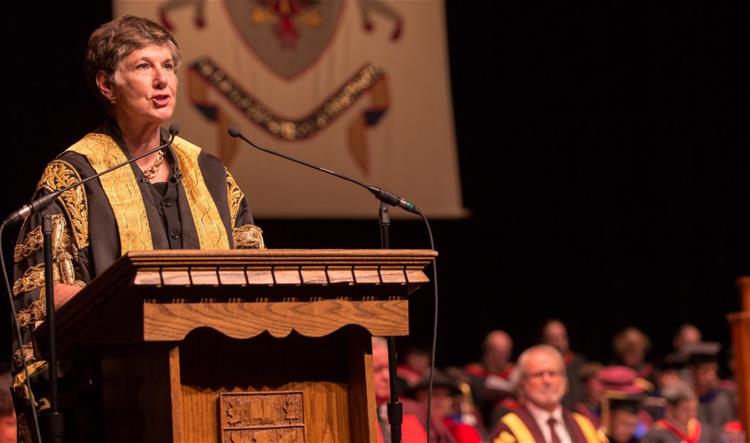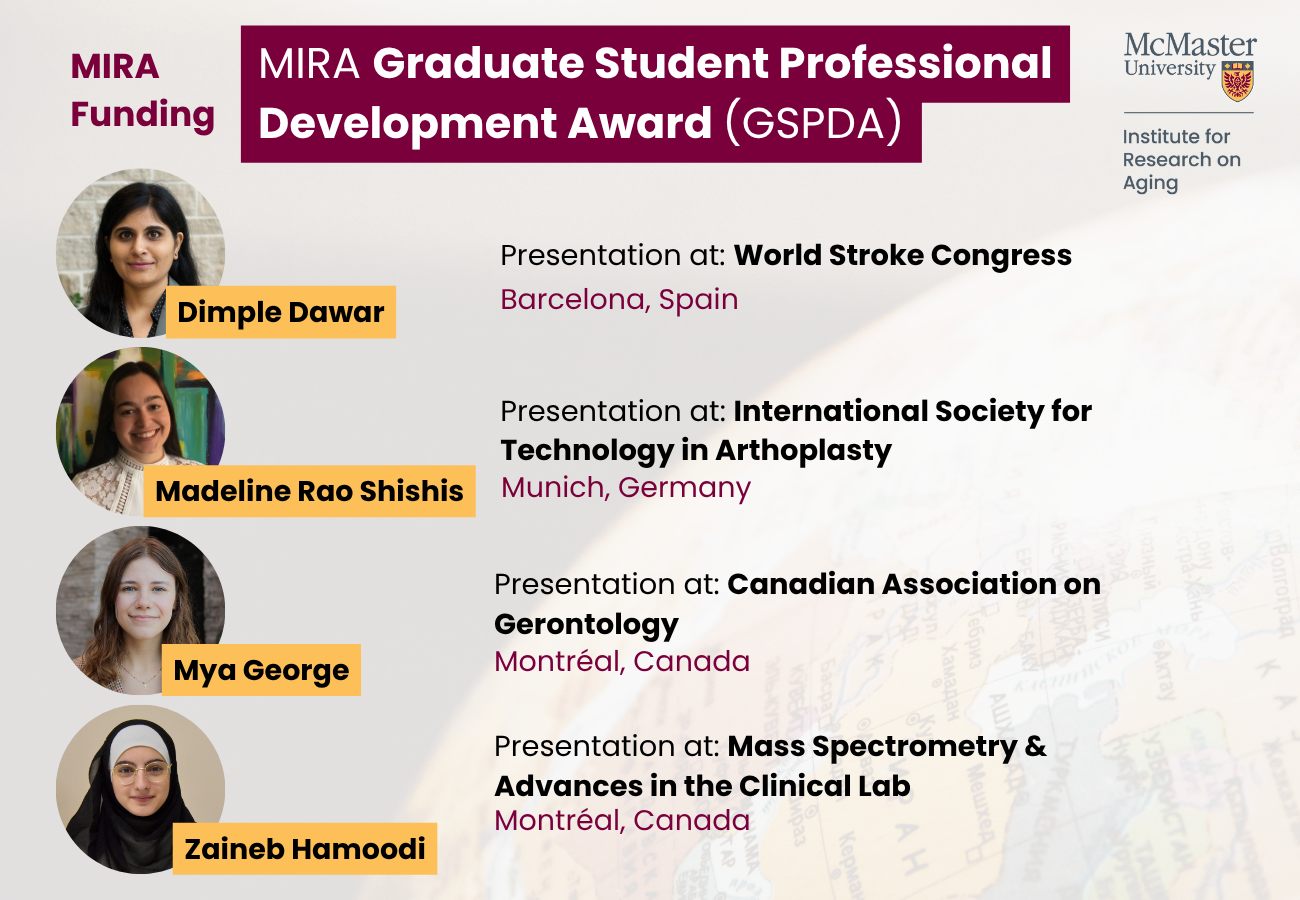
Published: ​May 29, 2019
In her six years as McMaster Chancellor, Suzanne Labarge has worn the 15-kilogram, gold-trimmed ceremonial robe dozens of times, and granted thousands of degrees. A Mac grad herself, she went from an economics BA here to an MBA at Harvard, and from there to a career in corporate Canada and public service.
In 2007, Labarge endowed the Raymond and Margaret Labarge Chair in Research and Knowledge Application for Optimal Aging, named in honour of her parents.
Five years later, inspired by Labarge Chair Parminder Raina’s ambitious vision of expanding the scope of aging research, she gave the university $12 million to create the Labarge Optimal Aging Initiative. Part of that was the McMaster Optimal Aging Portal, “which I’m extremely proud of,” she says with a smile.
In 2016, she gave the university $15 million to create the McMaster Institute for Research on Aging, an umbrella organization that co-ordinates cross-faculty initiatives focused on aging.
Labarge was awarded an honorary doctorate in 2011. This week, she receives the Distinguished Service Award, the McMaster Alumni Association’s highest volunteer award, in recognition of her outstanding contribution and dedication to the alumni association.
Here, she reflects on her time as chancellor:
ON CONVOCATION
Convocation is one of the reasons I agreed to become chancellor. I’d already been on the Board of Governors for years. But convocation is what we’re all about: The education of young people. All that governance and administration and all the things the university does, this is where it comes to a head, in granting degrees to young people. It links everything to the fact that we are educating the future generation.
Convocation can be funny, too. My first year, really high heels were the rage. And it was obvious that a number of the young women who are graduating didn’t wear them regularly. I swear, as we watched them wobble across the stage, all of us in the front row were sitting there, afraid that at some point we were going to have to catch somebody.
ON STUDENTS
The thing that strikes me compared to when I was here is just how much more polished students are. I don’t know too many of my class who could have made the kind of speeches that I have heard valedictorians make at convocation. We’re turning out some very, very, very accomplished young people.
ON CHAMPIONING RESEARCH IN AGING
My mother was closely involved in a lot of organizations that worked on aging when we both lived in Ottawa. She got me interested in all the issues around aging, which you suddenly realize are very complex. And I also watched her and her friends age.
I saw that if we, as a society, didn’t start to learn how to deal with an aging population, the baby boomers were going to overwhelm the health-care system. And I just didn’t think anybody was paying enough attention to the things we should be doing to help people age well, and to stay at home, because we can’t financially afford to hospitalize everybody.
ON THE IMPACT OF BEING CHANCELLOR
When I look at the chancellors we’ve had, we all have very different personalities, and our interests have shaped our roles. My interest has always been in aging, even before I became chancellor, when I funded the Labarge Optimal Aging Initiative and the Optimal Aging Portal.
But being chancellor has allowed me greater insight into how the university works. And it’s probably because I was chancellor and could see up close the impact of the work being done here, that I ended up giving the $15 million in 2016.
ON REMEMBRANCE
One thing the chancellor does is give a speech for Remembrance Day. My very first time, I had just become chancellor. I hadn’t even done a convocation yet. Earlier that year I had been to Normandy and Juno Beach. And in the Canadian cemetery, I looked at the birth dates on those memorials and it really hit home for me that most of those people were kids. They would have been in university in today’s world.
It was so easy to forget how many people fought, and what they died trying to create, and the price paid by the people they left behind. I had forgotten it myself for so many years. And if I hadn’t been asked to give a speech, I probably would have forgotten again over time.
But when I look at today’s world, and what’s going on now, and all of the institutions we created after World War Two, that allowed us to have this incredible prosperity and peace for the last 60 or 70 years, I worry that people forget how much it cost society to get there.
ON WHAT MAC MEANS TO HER
It gives me a sense of community. I’ve made some lasting friendships here, and it’s given me a pride in this university that I don’t think I fully had before. I can speak with passion now about the quality of education and the calibre of research at McMaster. I know now what it means in today’s world. I know the innovation, the thoughtfulness, and the generosity of so many of the people I’ve met here. I feel I’m part of this community. And the good thing is, I won’t lose that.

